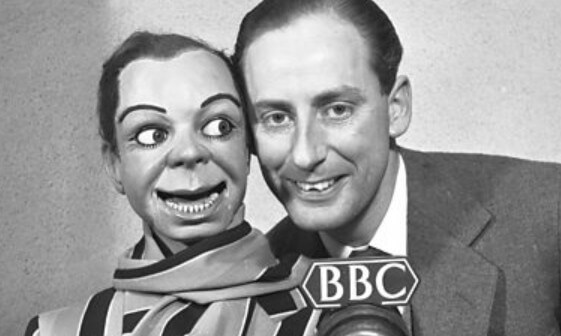Educating Archie: The Unlikely Radio Sensation That Captivated Britain

Educating Archie remains one of the most intriguing success stories in the history of British entertainment. At a time when the golden age of radio was defined by clever dialogue and compelling soundscapes, a ventriloquist’s dummy became the centre of a phenomenon that drew millions of listeners across the nation. From its first broadcast in 1950 to its enduring cultural footprint, the programme proved that originality and humour could triumph over logic. After all, a show built on ventriloquism – an art form usually dependent on sight – had somehow conquered the airwaves.
The Origins of a Unique Concept
The idea for Educating Archie came at a time when Britain was still recovering from the devastation of the Second World War. Audiences were hungry for entertainment that would lift their spirits and transport them into a world of laughter and charm. Enter Peter Brough, a young ventriloquist who had already begun to make a name for himself on the variety stage. Brough’s creation, the cheeky and irrepressible dummy Archie Andrews, was a character full of mischief and youthful innocence. The programme’s premise was simple: the young Archie, ever curious and often naïve, would receive lessons in life, culture and manners from a rotating cast of mentors and companions. It was a concept both whimsical and versatile, allowing writers to craft situations that entertained audiences week after week.
The Main Characters and Their Appeal
Peter Brough may have been the voice behind the show, but Archie Andrews was undeniably the star. With his high-pitched, impish voice and mischievous personality, Archie quickly became a household name. Listeners loved his ability to tease his human counterparts while maintaining a charm that endeared him to audiences of all ages. The supporting cast read like a who’s who of British comedy talent. Over the years, performers such as Tony Hancock, Harry Secombe, Beryl Reid, Max Bygraves, Dick Emery and a very young Julie Andrews lent their voices and comedic timing to the show. This ensemble brought variety and freshness to each episode, ensuring that the humour never became stale.
Julie Andrews, who would later achieve international fame in musicals such as The Sound of Music and Mary Poppins, was only a teenager when she joined the cast. Her role as Archie’s girlfriend gave her an early platform to showcase the extraordinary vocal talents that would later make her a global star. For many listeners, discovering new comedic and musical talent on Educating Archie became part of the show’s weekly magic.
The Writers and the Craft of Comedy
Behind the microphone, some of the finest writers in British comedy were shaping the programme’s success. Eric Sykes, Sid Colin and others provided scripts that balanced quick-witted humour with family-friendly charm. Their ability to create playful exchanges between a wooden dummy and a ventriloquist captivated audiences and kept the show’s dialogue sharp and memorable. It was the quality of this writing that allowed Educating Archie to flourish for a full decade on radio, despite the inherent absurdity of a ventriloquist act without visuals.
A Phenomenon of Its Time
At its peak, Educating Archie drew an audience of around fifteen million listeners – an extraordinary figure for any broadcast, and even more remarkable for a comedy built on ventriloquism. Fan clubs sprang up across the country, with membership numbers reportedly reaching a quarter of a million. The show’s popularity turned Archie Andrews into a national celebrity. Children wrote letters to him as though he were a living boy, while adults marvelled at the cleverness of the scripts and the warmth of the performances.
The programme also reflected the optimism of post-war Britain. It offered a form of light-hearted escapism at a time when the country was still rebuilding. Through Archie’s humorous “lessons” in life and culture, listeners were able to laugh at the foibles of human nature while enjoying a sense of shared national identity.
Transition to Television
In the late 1950s, as television became the dominant medium, it seemed natural to bring Educating Archie to the small screen. From 1958 to 1959, the show aired on ITV, produced by Associated-Rediffusion. The move was a logical progression, allowing audiences finally to see the famous dummy and his creator in action. Yet the transition exposed the limitations of ventriloquism on television. Peter Brough’s technique, which had been invisible on radio, now faced the scrutiny of cameras. Viewers could occasionally see his lips move – a small flaw that critics seized upon. Although the television version ran for two series, it never quite matched the effortless charm or the immense popularity of the radio original.
Cultural Legacy and Influence
Educating Archie left an enduring mark on British comedy and broadcasting. It launched the careers of several performers who would go on to become national treasures. Tony Hancock, for example, honed his comedic style on the show before creating the legendary Hancock’s Half Hour. Julie Andrews’ early appearances helped introduce her talent to the world. The programme also demonstrated the power of well-crafted writing to overcome seemingly impossible odds. Who would have predicted that a ventriloquist’s dummy could thrive in a medium where nobody could see him?
The show’s success also highlighted the communal nature of mid-century radio. Families gathered around their sets each week to share in Archie’s adventures. In an era before on-demand entertainment and streaming services, this collective listening experience helped shape the cultural memory of a generation. The catchphrases, jokes and mischievous charm of Archie Andrews became part of Britain’s popular lexicon.
Lessons from a Radio Legend
The story of Educating Archie offers a number of lessons about creativity and innovation. First and foremost, it proves that great entertainment depends less on format than on imagination. By pairing a ventriloquist act with exceptional writing and lively performances, the show transformed an unlikely concept into a national institution. It also demonstrates the enduring appeal of characters who capture the spirit of their time. Archie Andrews embodied youthful curiosity and playful rebellion, qualities that resonated with listeners in the uncertain but hopeful years after the war.
Decline and Retirement
By the early 1960s, changing tastes and the growth of television meant that the golden age of radio comedy was drawing to a close. In 1961, following the death of his father, Peter Brough decided to retire Archie and step away from the spotlight. He chose to return to the family textile business, leaving behind a legacy that would continue to inspire comedians and broadcasters for decades to come. Though Archie Andrews was placed in storage, the character’s impact on British entertainment remained undiminished.
Conclusion
Educating Archie stands as a testament to the power of inventive storytelling and the enduring charm of well-crafted comedy. Against all expectations, a ventriloquist’s dummy became a beloved figure in the homes of millions, proving that wit and imagination can transcend the limits of any medium. The show’s success paved the way for countless performers and writers, demonstrating that true entertainment lies not in the obvious or the expected, but in the boldness of a unique idea. More than seventy years later, the memory of Archie Andrews and his mischievous lessons continues to delight those who discover the tale of Britain’s most unlikely radio sensation.



